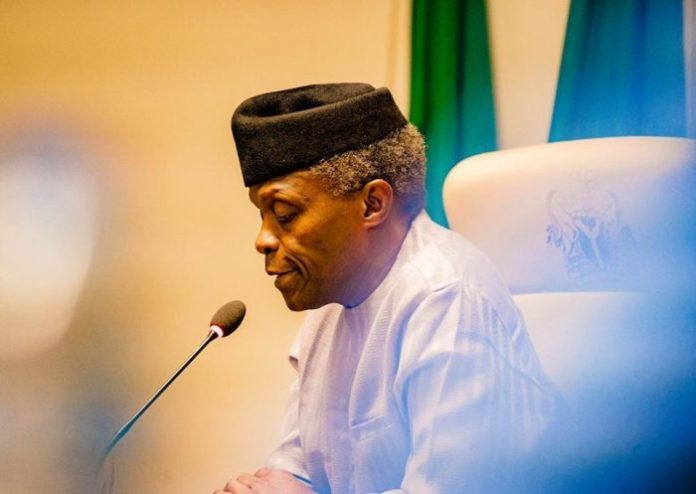Why government can’t concession rail line ― Osinbajo

Vice President, Professor Yemi Osinbajo, has identified the huge capital demand of laying a rail track, as one of the impediments responsible for non-concession of such projects to individuals or corporate organisations.
Making this known on Friday, at a Presidential Policy Dialogue Webinar, organised by the Lagos Chamber of Commerce and Industry (LCCI), Prof. Osinbajo added being capital intensive, what the federal government had done, was to prosecute the project from the sovereign fund, with the aim of concessioning the running of such rail to the private sector.
Osinbajo, in his response to questions from some of the participants at the webinar, however, expressed the readiness of the Federal Government to partner with the private sector, in its infrastructure development programme.
Professor Yemi Osinbajo commended the Chamber for providing the opportunity for the Federal Government to rub minds with operators from the nation’s private sector, especially on issues affecting the nation’s business environment.
Prof. Osinbajo noted that it had become imperative for the Federal Government to partner with the organised private sector, to enable it to achieve its economic sustainability plan, designed to boost local production in the country.
The Vice President also assured operators in the nation’s private sector of the government’s commitment towards ensuring that the nation’s land borders, shut last year, would not remain permanently shut.
“We are holding discussions on this. But one thing I can assure you of is that the borders will not remain permanently shut,” he added.
Professor Osinbajo also threw his weight behind calls by some experts in the nation’s Oil and Gas sector, that the Federal Government should only concern itself with fuel price monitoring, to enable it fully deregulate the nation’s downstream sector.
“I agree totally with the call that the government must have nothing to do with fixing the price of fuel, but should only concern itself with monitoring to prevent price gouging. I also agree with the claim that this is the only way to truly deregulate the nation’s downstream sector, and we are really working towards that,” he stated.
While welcoming participants to the dialogue, the President of the Lagos Chamber of Commerce and Industry (LCCI), Mrs Toki Mabogunje, had expressed concerns at the slow pace of reforms in nation’s Oil and Gas Sector, which, she argued, had stunted the growth of the sector.
Mabogunje also called on the Federal Government to look into the issue of border closure, adding that the indefinite closure of the nation’s land borders had begun to take its toll on businesses in the country.
The LCCI boss also called for a funding model that would see a much bigger focus on private sector capital within a Public-Private Partnership (PPP) framework for infrastructure development in the country.
She explained that the dialogue was organised by the Chamber to enable members to rub minds with the Federal Government, so as to further boost the local economy.

